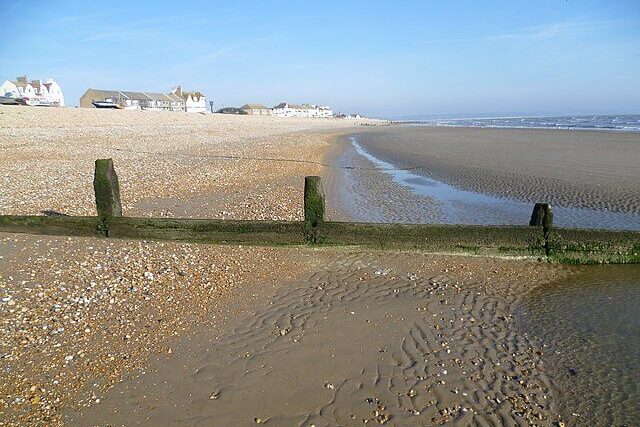
The latest data from the Environment Agency (EA) reveals a concerning surge in the number of English bathing sites deemed unsuitable for swimming, marking the highest level since the adoption of a new rating system in 2015.
Of the 423 popular swimming sites, primarily beaches, assessed by the EA this summer for potential health risks to bathers, 18 were categorised as “poor,” representing the highest count under the updated rating system.
The EA suggested that the unusually wet summer might have contributed to these results. Increased rainfall leads to more water runoff from roads and fields, potentially introducing higher levels of pollution into waterways.
Out of the tested sites, 281 were deemed “excellent” by the UK government’s environmental watchdog, a decrease of 21 from the previous year. Although a comparable number of sites met the minimum standards (“sufficient” or better) compared to 2015, the trend over the last three years indicates a rising number of sites rated as “poor.”
Water Minister Robbie Moore responded to the data by saying “our bathing waters have improved significantly in recent years” and highlighting government plans for more investment and stronger regulation of water companies.
The EA clarified that the reference to “recent years” in the minister’s statement was a comparison to water quality over a decade ago.
The escalating number of sites receiving a “poor” rating coincides with heightened awareness of untreated sewage discharges by water companies. In the preceding year, an average of 825 sewage spills into waterways occurred daily.
“You know things are bad when even our dodgy testing system can’t cover up the miserable state of water quality in England,” says Giles Bristow, the head of campaign group Surfers Against Sewage.
“With a 50% rise in the number of bathing waters failing to meet minimum standards, and a significant drop in those rated excellent, it’s clear that government and the regulator have been asleep at the wheel, all whilst water companies continue to profit from the pollution of our rivers and seas.”
While discharging sewage is legally permissible after heavy rainfall to prevent system overload, investigations revealed instances of such discharges occurring even in dry weather.
Alan Lovell, the chair of the Environment Agency, said: “The slight fall in standards this year shows we must go further to drive improvements and that this takes time and investment.
“While overall bathing water quality has improved over the last decade due to targeted investment, robust regulation from the Environment Agency and work carried out by partners, these results show there is significant work still to do to ensure the quality of our bathing waters is increasing every year.”
The majority of designated bathing sites are coastal, with three located along rivers, all of which have received a “poor” status, advising against swimming.
James Wallace, chief executive of the River Action campaign group, said: “Sadly, that tells its own story, that the UK’s rivers are in a very fragile state.
“Today only 14% of the UK’s rivers are considered healthy. Many others like the iconic River Wye are so polluted they are at risk of ecocide.”
The government faces mounting pressure to demonstrate a commitment to addressing concerns regarding sewage discharges and agricultural run-off’s impact on water quality.
“Our Plan for Water is delivering more investment, stronger regulation, and tougher enforcement to clean up our waterways and continue to improve our bathing waters,” says Water Minister Mr Moore.
“We have also set stringent targets for water companies to reduce sewage spills from storm overflows which frontloads action at designated bathing waters to make the biggest difference to these sites as quickly as possible.”
——————————————————————————
At Natural World Fund, we are passionate about stopping the decline in our wildlife.
The decline in our wildlife is shocking and frightening. Without much more support, many of the animals we know and love will continue in their decline towards extinction.
When you help to restore a patch of degraded land through rewilding to forests, meadows, or wetlands, you have a massive impact on the biodiversity at a local level. You give animals a home and food that they otherwise would not have had, and it has a positive snowball effect on the food chain.
We are convinced that this is much better for the UK than growing lots of fast-growing coniferous trees, solely to remove carbon, that don’t actually help our animals to thrive.
This is why we stand for restoring nature in the UK through responsible rewilding. For us, it is the right thing to do. Let’s do what’s right for nature!
Donate today at https://naturalworldfund.com/ and join in the solution!

